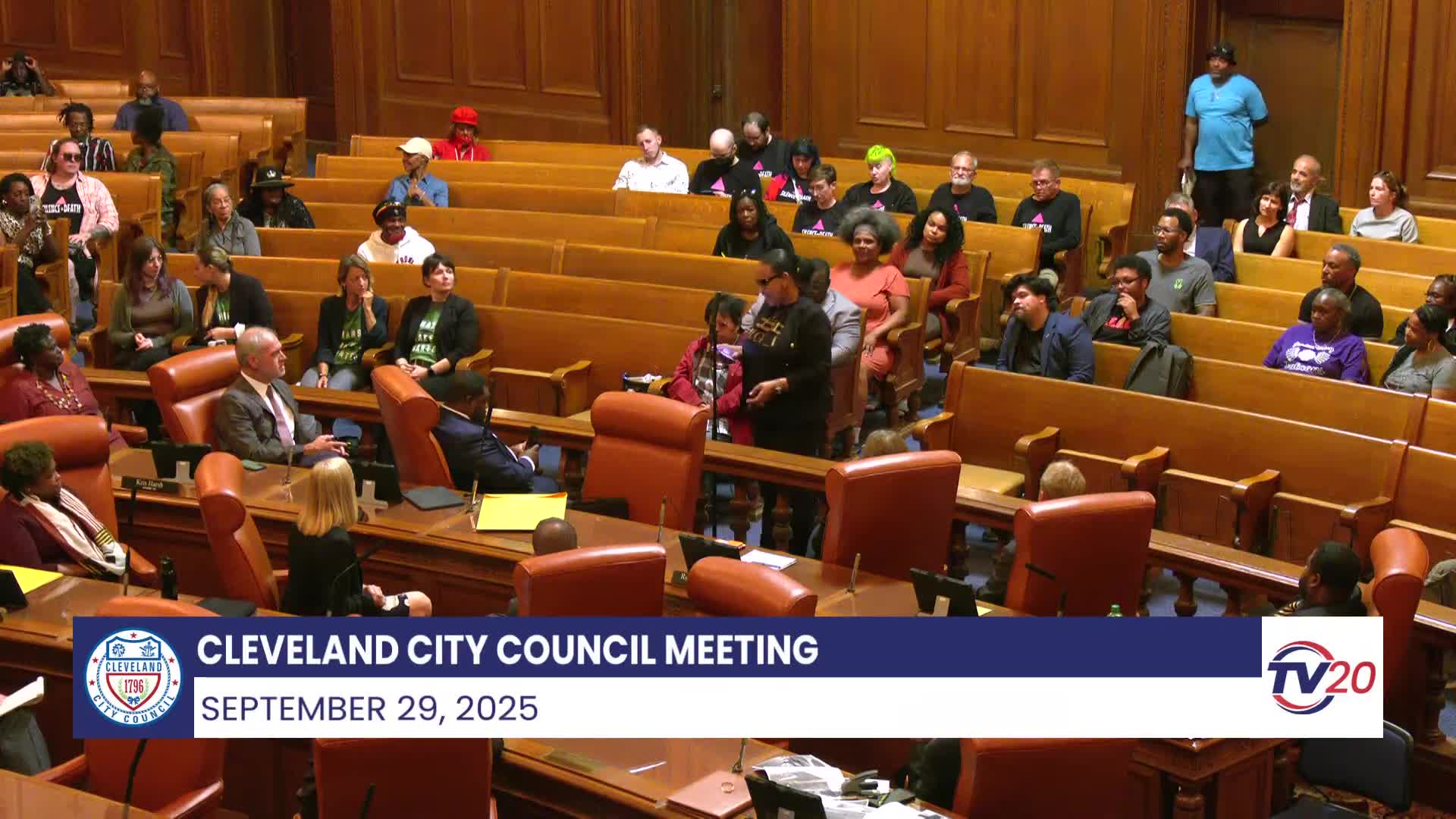Article not found
This article is no longer available. But don't worry—we've gathered other articles that discuss the same topic.
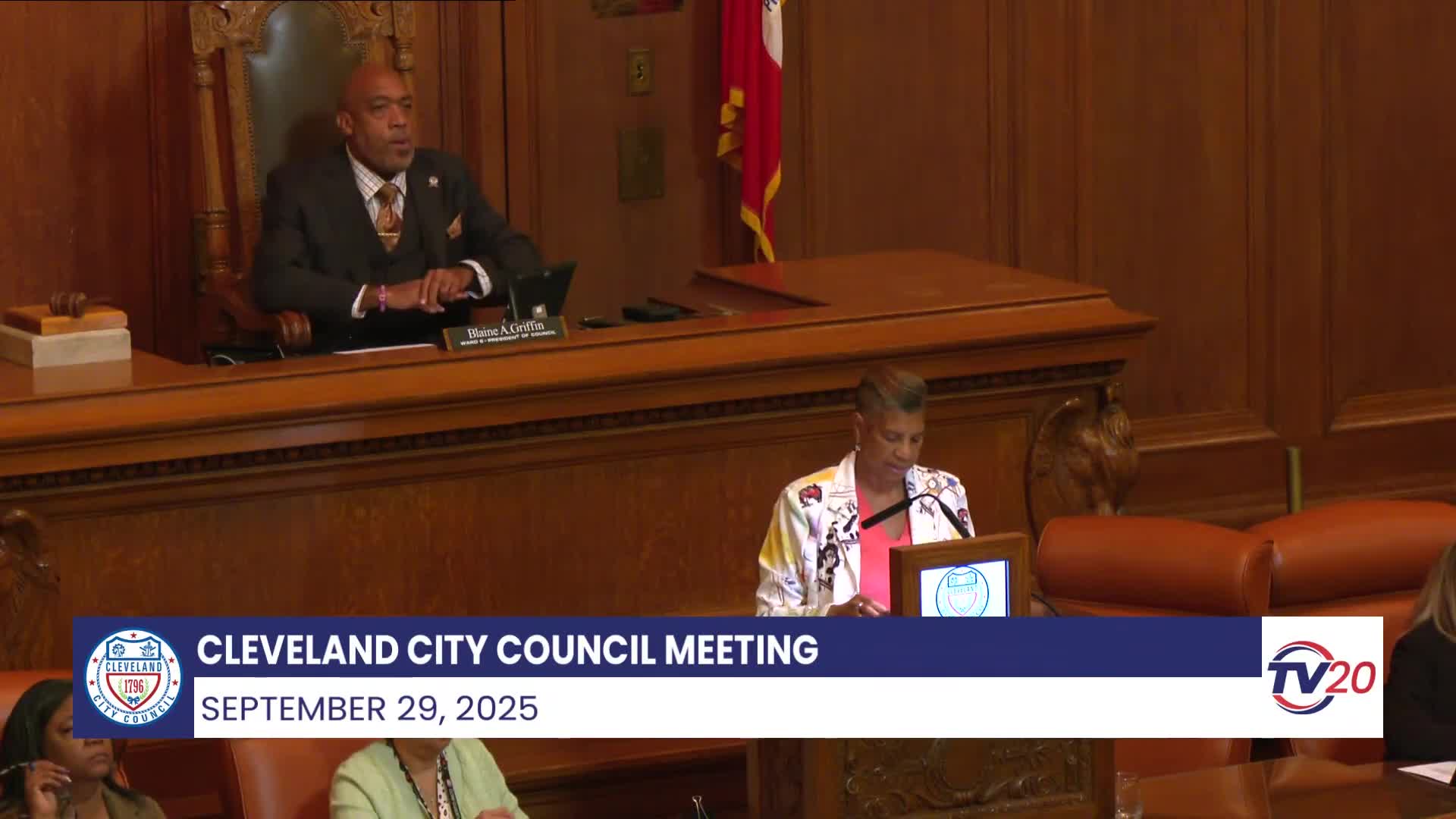
Cleveland City Council suspends rules and adopts multiple ordinances and resolutions in unanimous votes
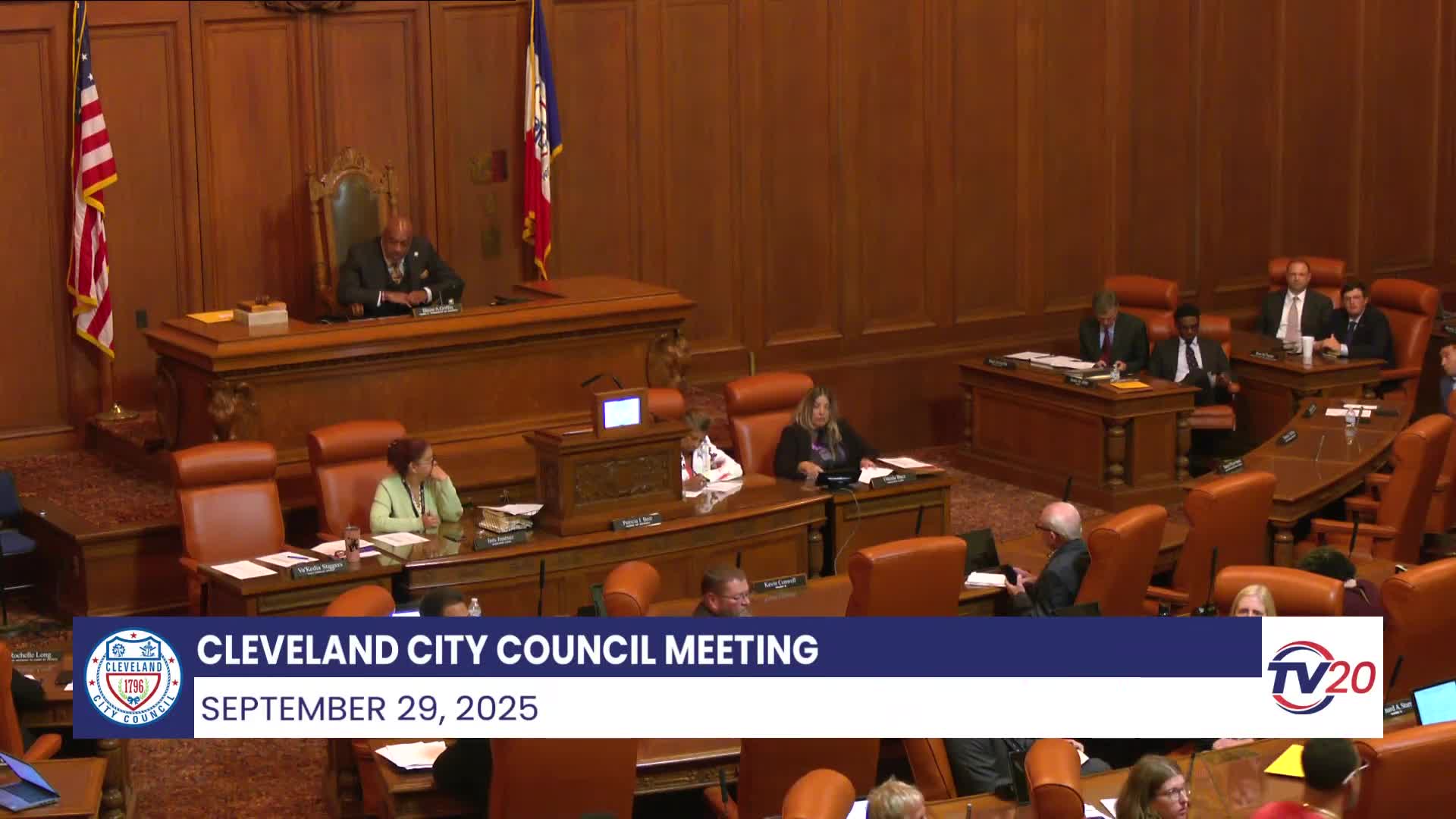
Formerly incarcerated entrepreneur urges council to fund CDL training program after CPC grant dispute
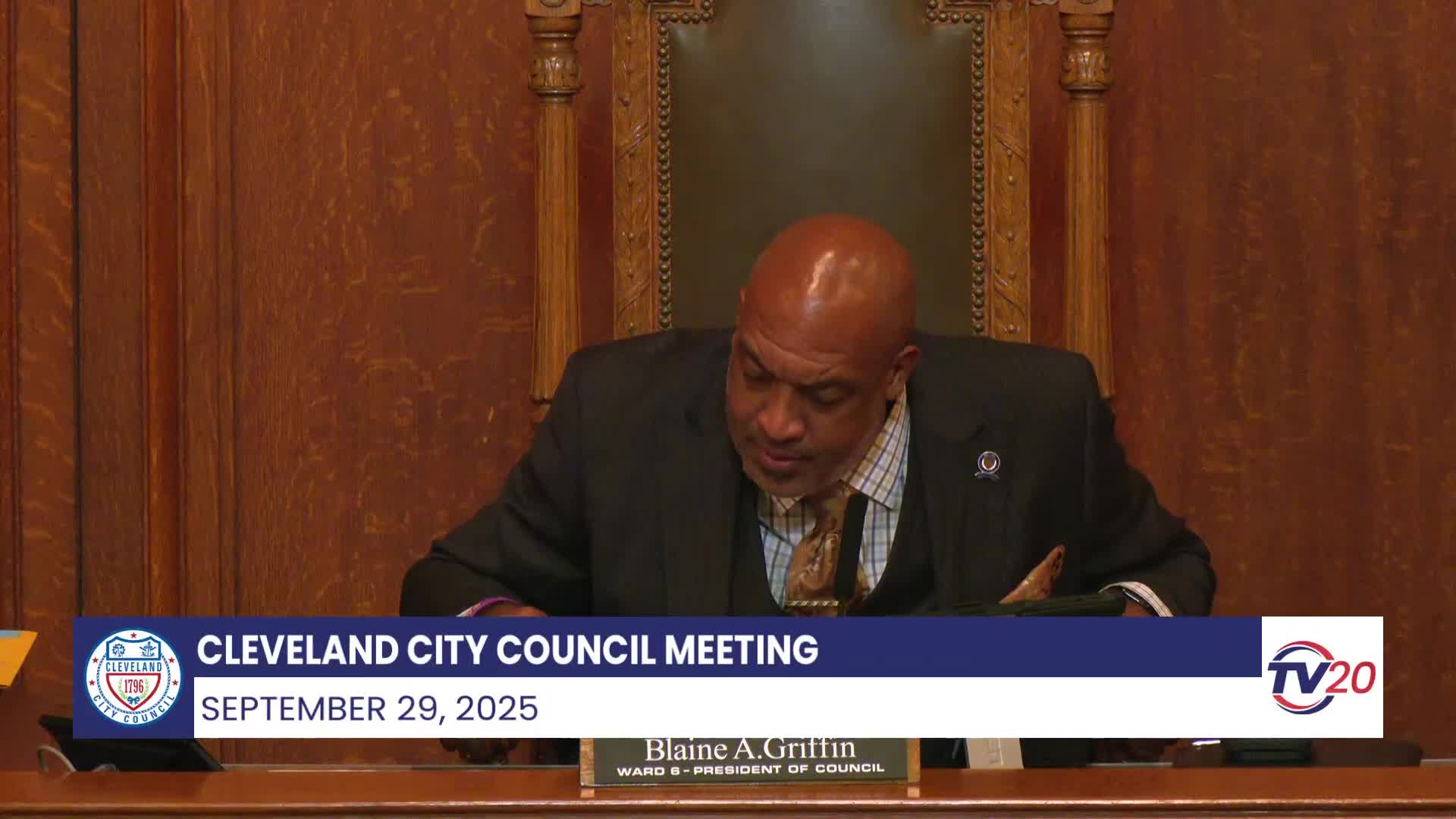
Speakers urge city action on encampments and say housing access is public safety
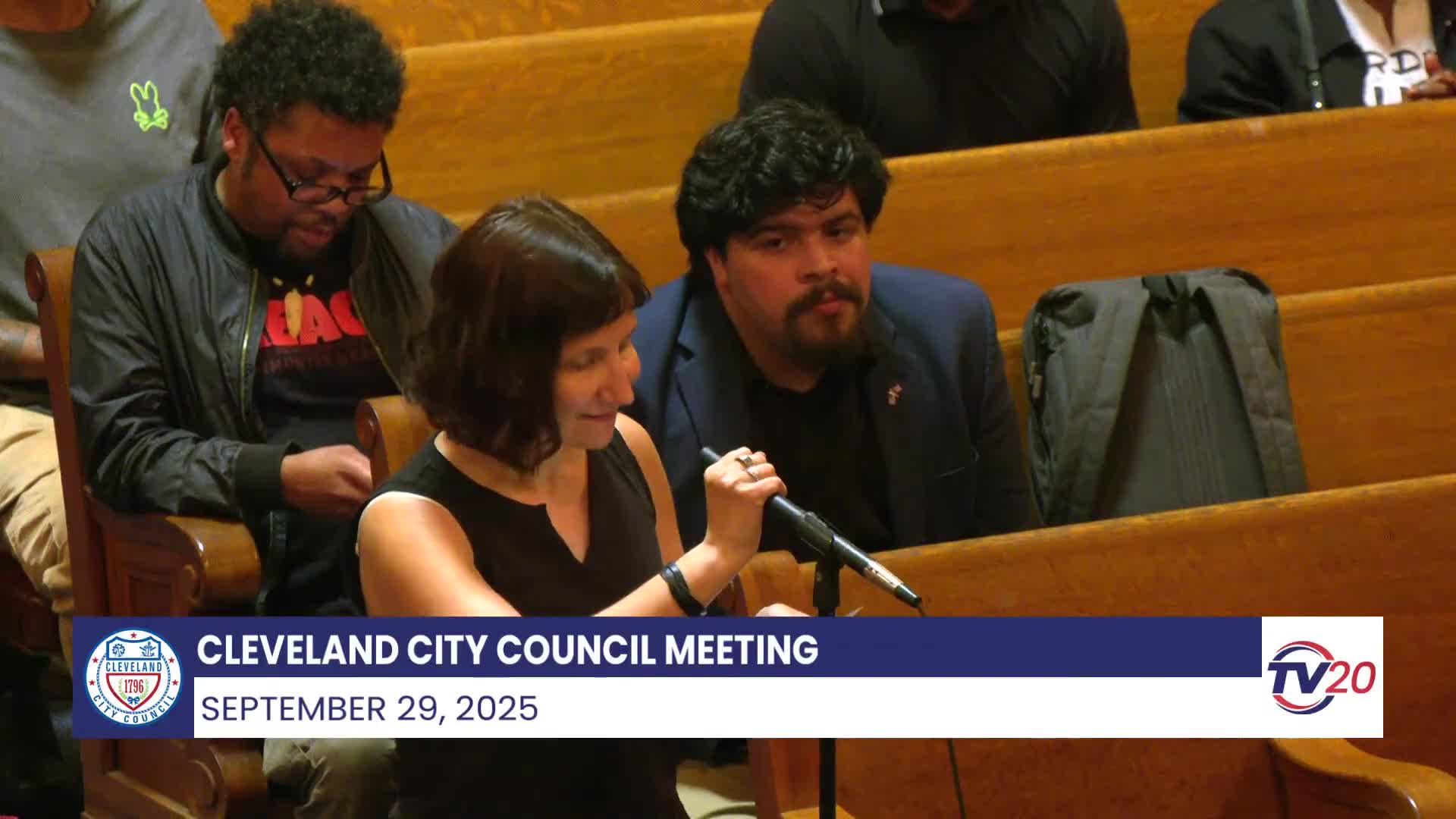
Residents, candidates and activists urge council to block proposed gas station at former CVS lot and consider a city purchase for a fire station
